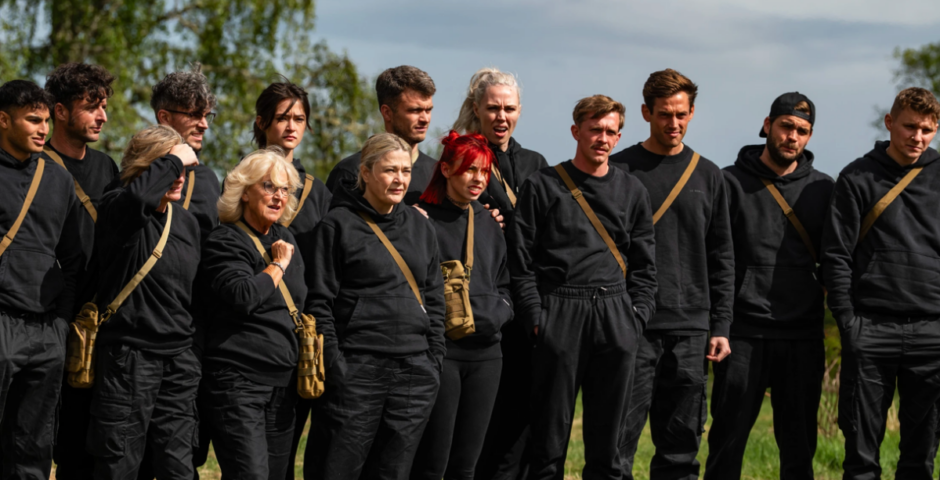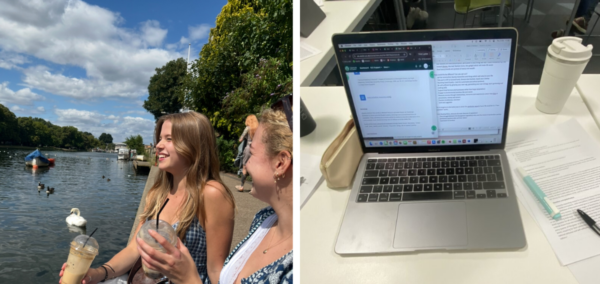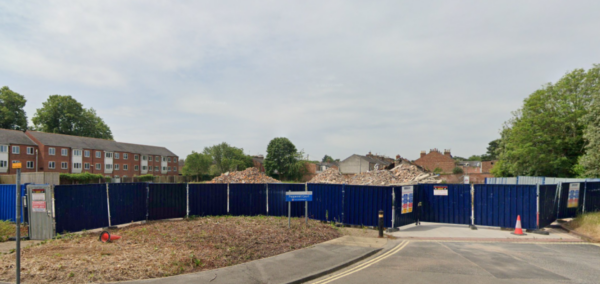
In conversation with Edinburgh’s Persian Society on the realities Iranian women face today
‘This situation is not over, there is simply less attention on it’
Over a year has passed since widespread protests broke out with chants of “women, life, freedom” being shouted across the globe following the death of the 22-year-old student, Mahsa Amini, in police custody.
Iranian morality police arrested Amini for allegedly wearing the hijab inappropriately, and outrage erupted after the Iranian government claimed her death stemmed from a heart condition, contested by her family and witness accounts.
A Sunday Times investigation reports that it took 45 minutes for an ambulance to be called after her collapse – this is but one example of the oppression faced by Iranian women today.
I sat down with the Persian Society to discuss what this issue means for Persian and Iranian students on campus and what the wider student body can do to help.

A society picnic with Roxana Fischbacher, President of the Society (left)
What is the Persian society?
While mentions of societies focused on nationality or ethnicity can bring to mind scenes of the French Society’s infamous wine and cheese nights, or the Scandinavian Society’s pub crawls and quizzes, they also serve a critical role in bringing together members of communities and opening discussions.
Edinburgh University’s Persian Society (EUPS) is a non-political and not-for-profit cultural group that hosts events to promote Persian culture, film, music and more. These events have included movie nights and celebrations of festivals such as Yalda and Nowruz (Persian New Year).
Most Read
EUPS is actively engaged in educational initiatives aimed at raising awareness about the plight of women in Iran. They organize talks, panel discussions, and awareness campaigns to inform the university community about the challenges faced by women in Iran. These initiatives often feature speakers who are experts in Middle Eastern politics, Iranian culture, or human rights advocacy, having hosted an informative discussion titled “What is going on in Iran? Come and ask us”, with a guest speaker of Dr Sayeed Talajooy at the height of the protests last year.
What is the significance of the restrictions placed upon women in Iran?
Iran’s legal system, influenced by conservative interpretations of Islamic law, imposes many restrictions on women, including mandatory hijab laws and limited rights in matters like divorce, child custody, and inheritance. Even the simple act of dancing is outlawed in the nation, a freedom we perhaps take for granted on the dance floors of Subway, Bongos, or Hive. Women’s active resistance to these laws is a critical step towards broader legal and social reforms.
The current situation has fostered a sense of empowerment and solidarity among women in Iran and globally. The protests and movements led by Iranian women have encouraged solidarity from women and human rights activists worldwide, creating a united front against gender-based oppression.

Stall at Welcome week where the society welcomed new and returning members
Ava Ostad-Aghaei, the society’s publicity officer, was open in sharing how she, herself, has heard from relatives who had witnessed the consequences of these restrictions, offering insight into how this experience can affect students on our campus.
She went highlighted that anger towards the imposed dress code is not in opposition to the wearing of the hijab, but “to protect the idea that people should be allowed to express what they want”.
President of the Persian Society, Roxana Fischbacher, told the Edinburgh Tab: “Anyone who cares about human rights should care about what’s going on in Iran. Laws enacted go against the fundamentals of Iranian culture – there is almost always dancing at Persian events.”
Roxana expressed that “the current state is a corruption of Islam” and that “the laws act to reduce women to their bodies and aim to destroy Iranian spirit”.
Amongst the backdrop of other issues on campus, is there room for this discussion? And what can we do as Edinburgh students?
Speaking out on the recent protests on campus, Roxana told the Edinburgh Tab: “If the activism spot in your brain is taken up right now, you can still educate yourself… it does make a difference to talk about it.”
Moreover, the committee stressed the small and easy steps students can take to educate themselves on Iranian news, culture and history, encouraging the reading of books and listening of podcasts regarding current events in the region.
Supporting initiatives led by Iranian students or those with a focus on Middle Eastern politics can be crucial. This support can be in the form of attending events, volunteering, or even providing a platform for these voices.

Society picnic.
“This situation is not over, there is simply less attention on it – I am hopeful that Iran will be the place it can be.”
If you are interested in joining the Persian Society, the group host discussions and Q&A’s regularly open to any students looking for “an opportunity for people who want to inform themselves”.
Further information is available on the University of Edinburgh Persian Society’s Instagram.
Image via Unsplash



















